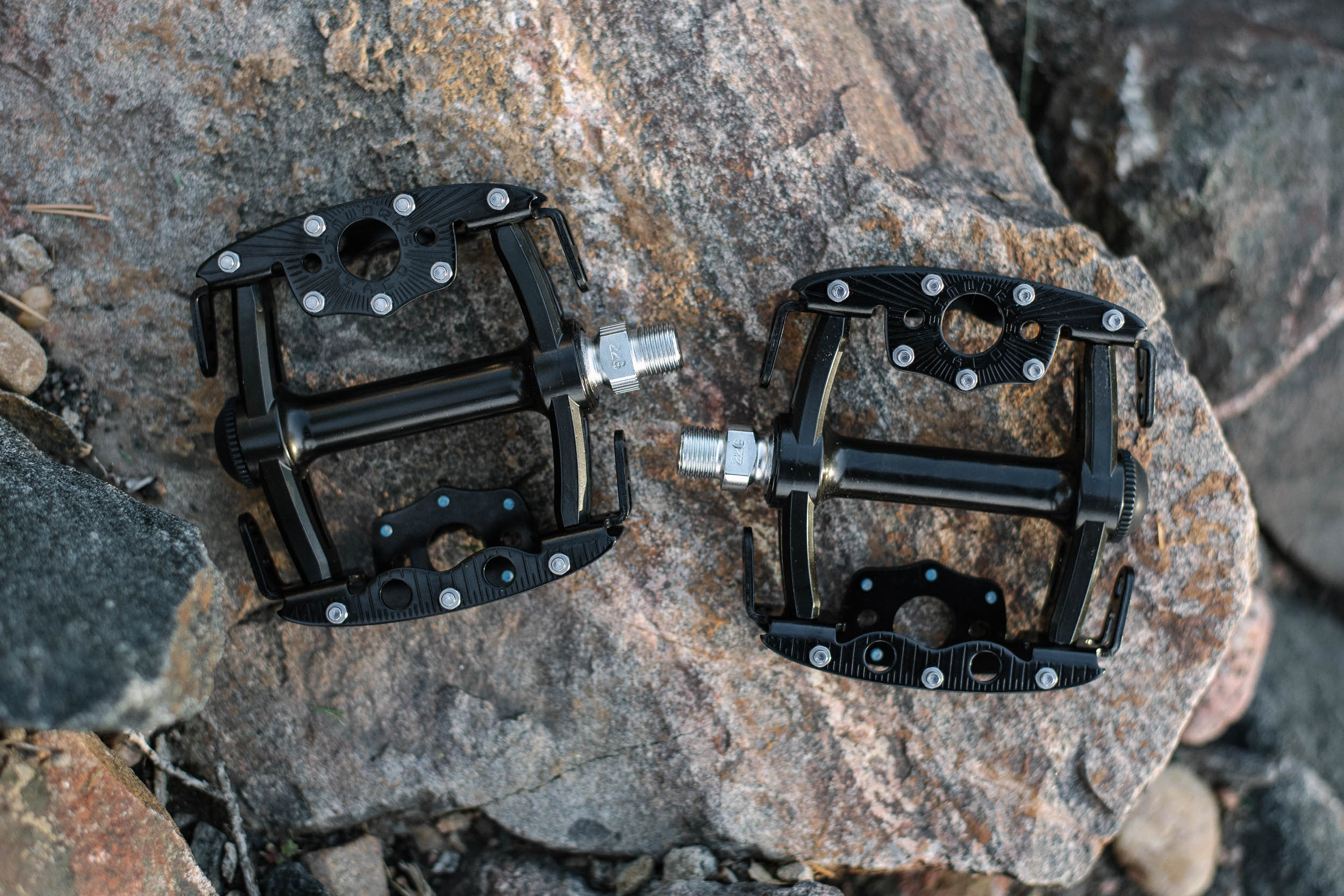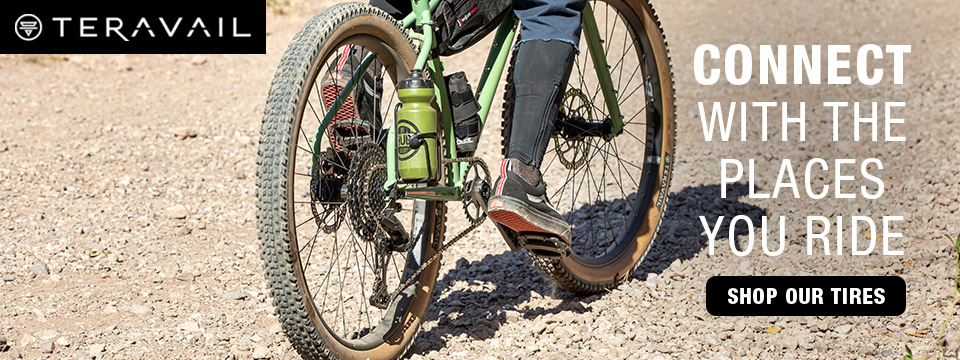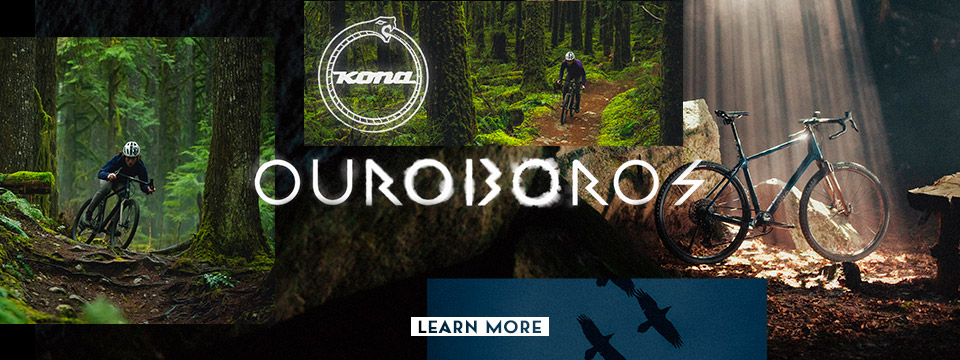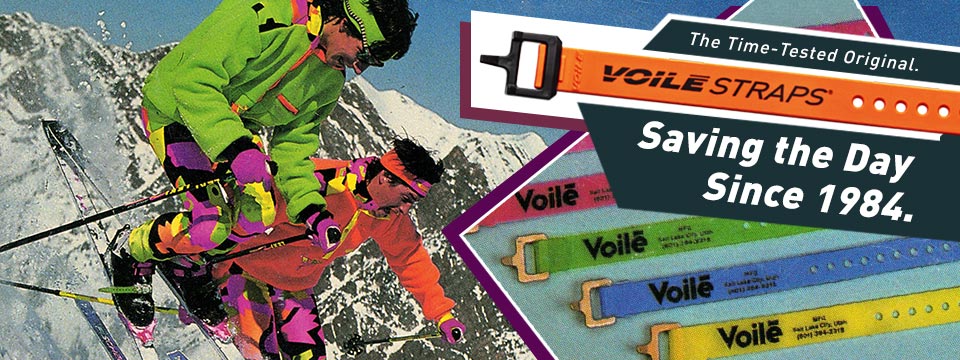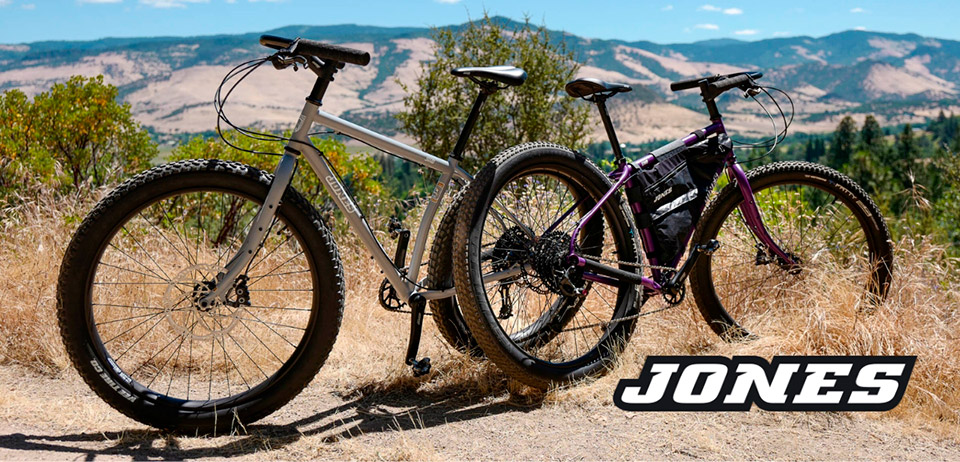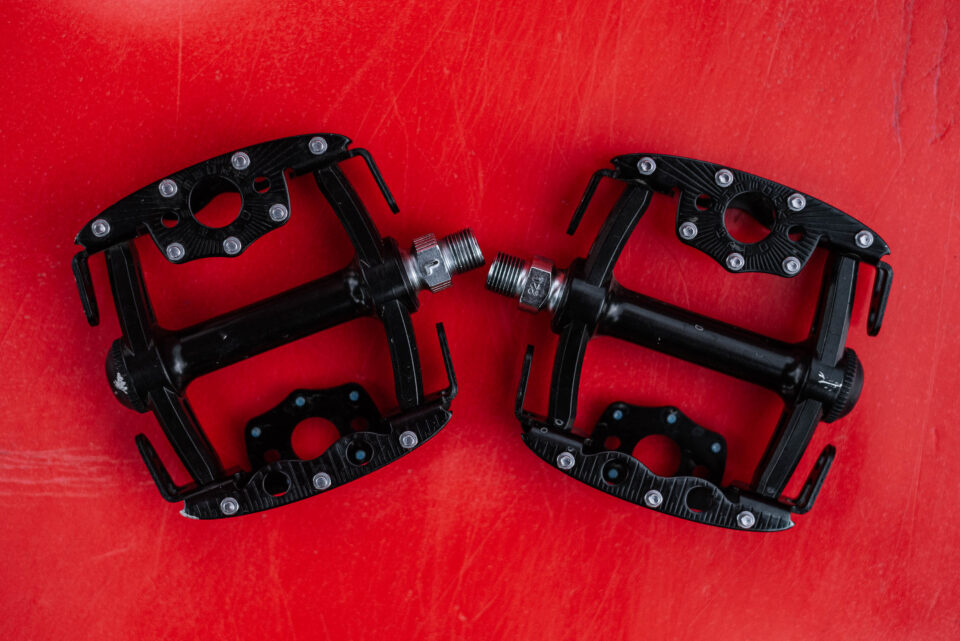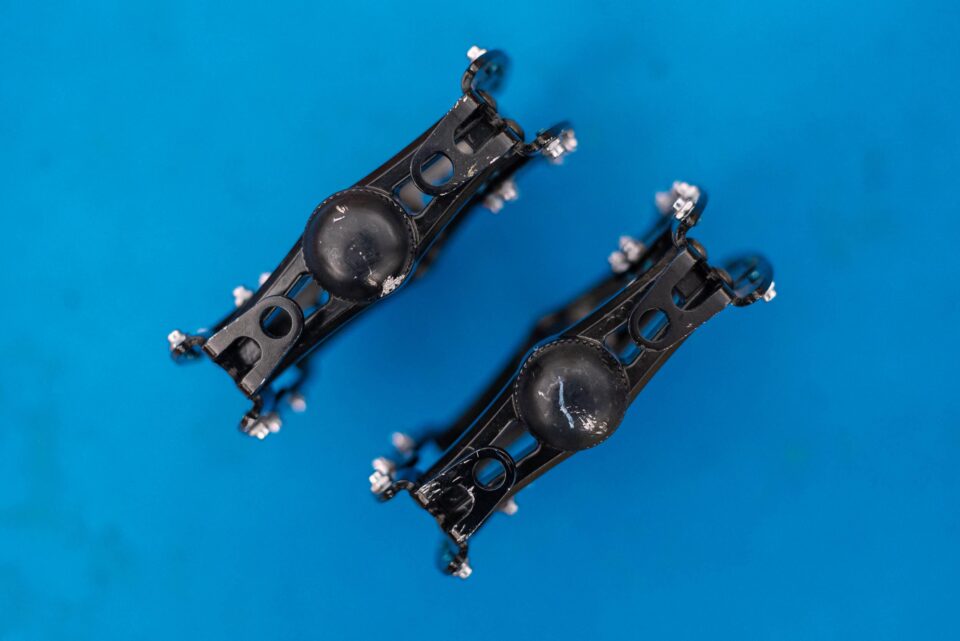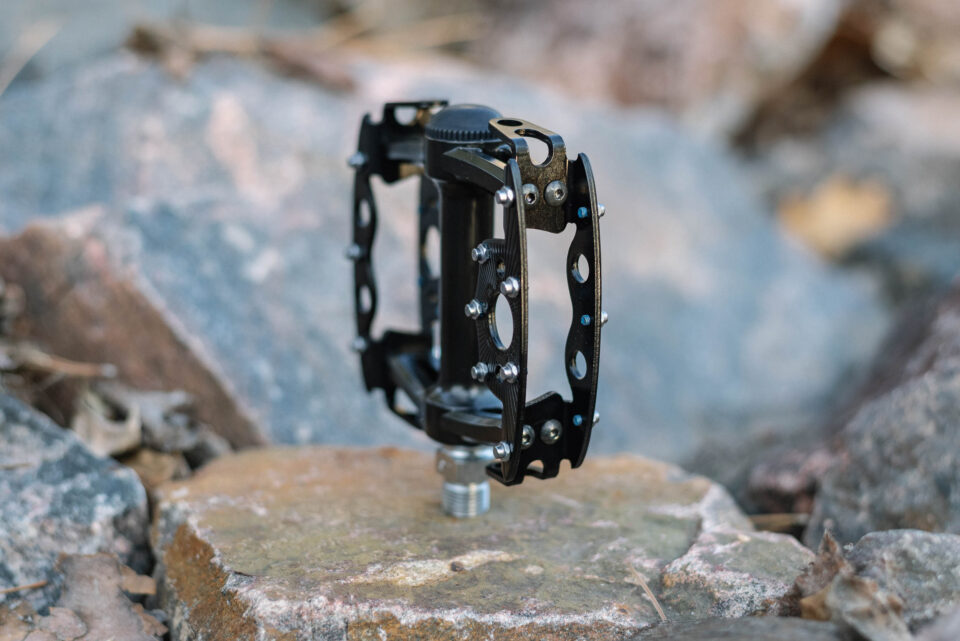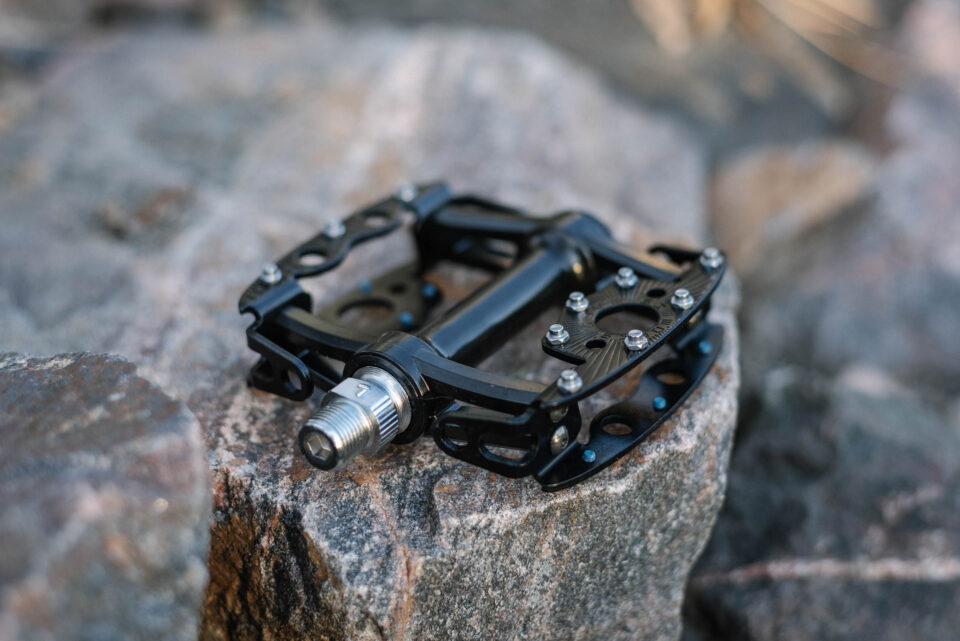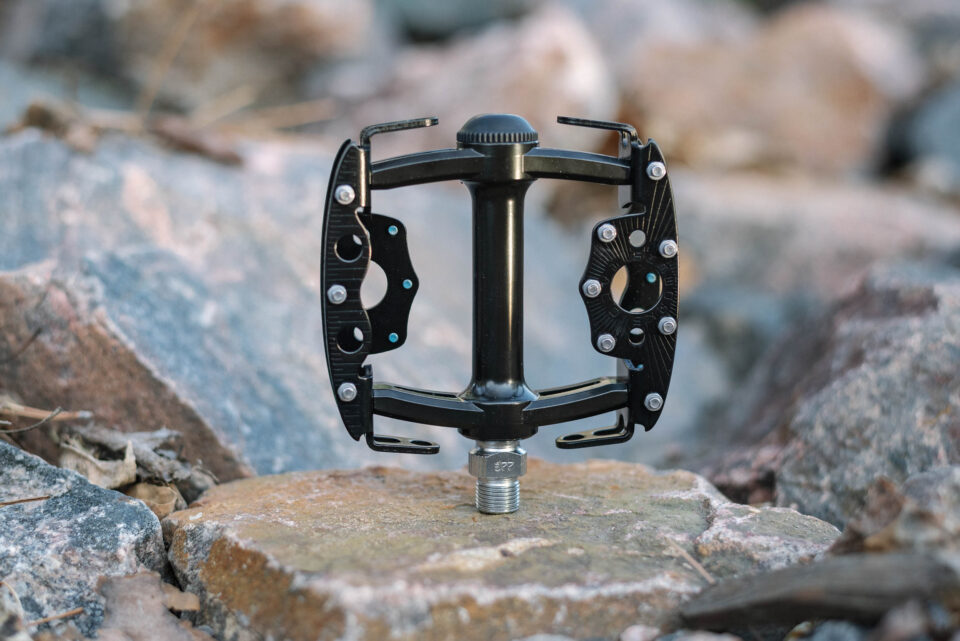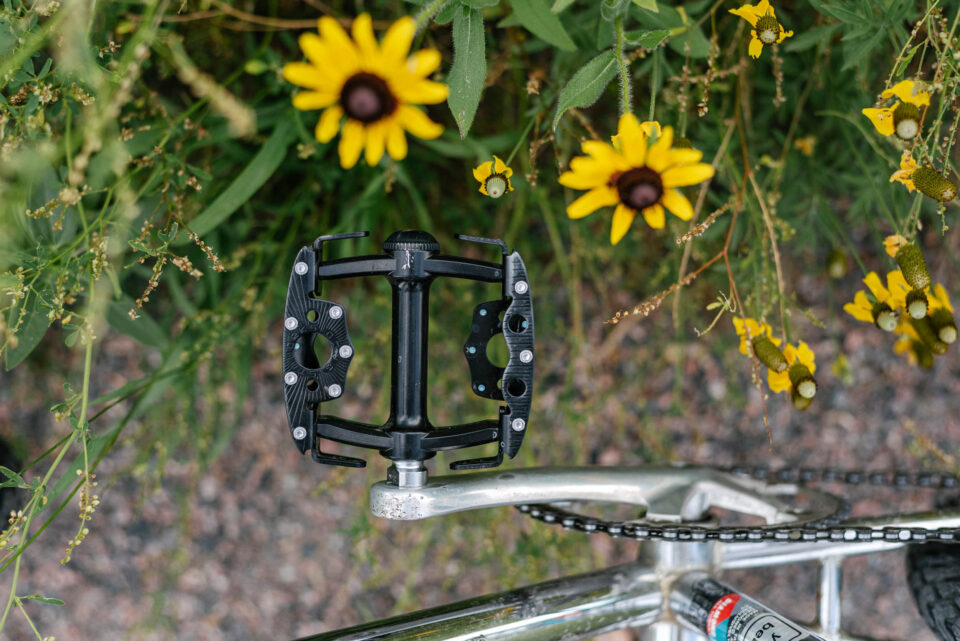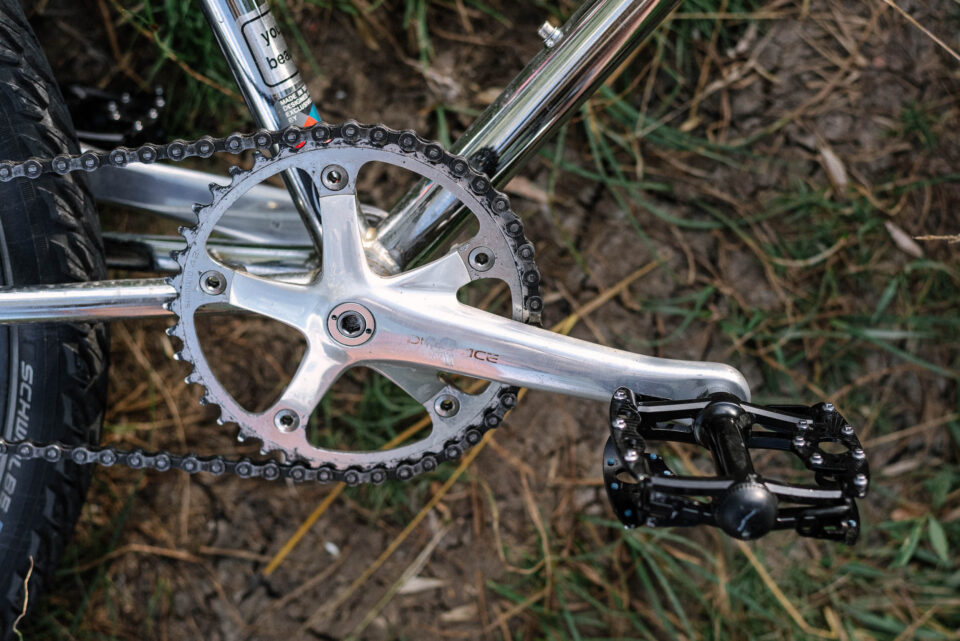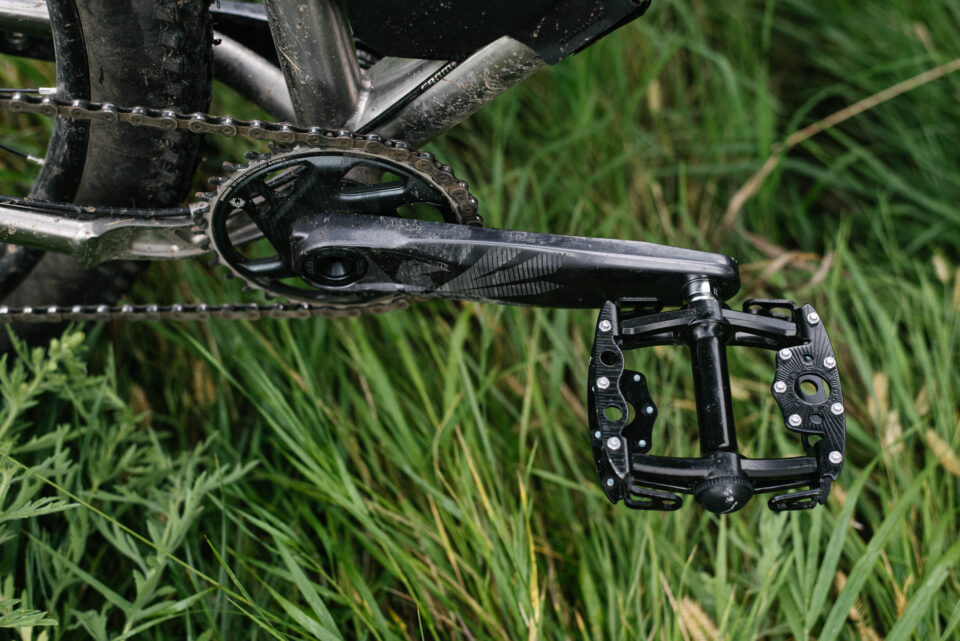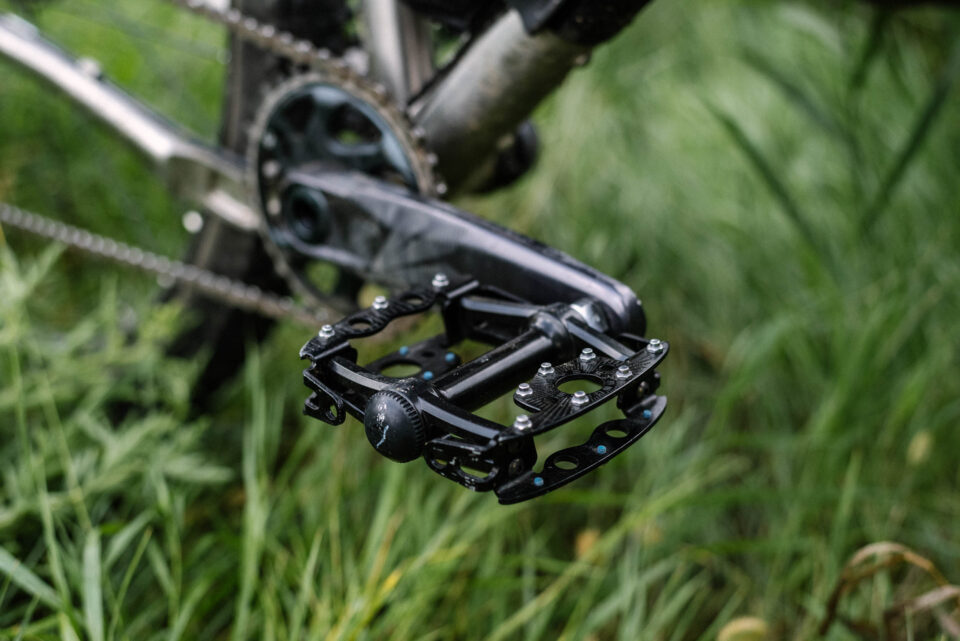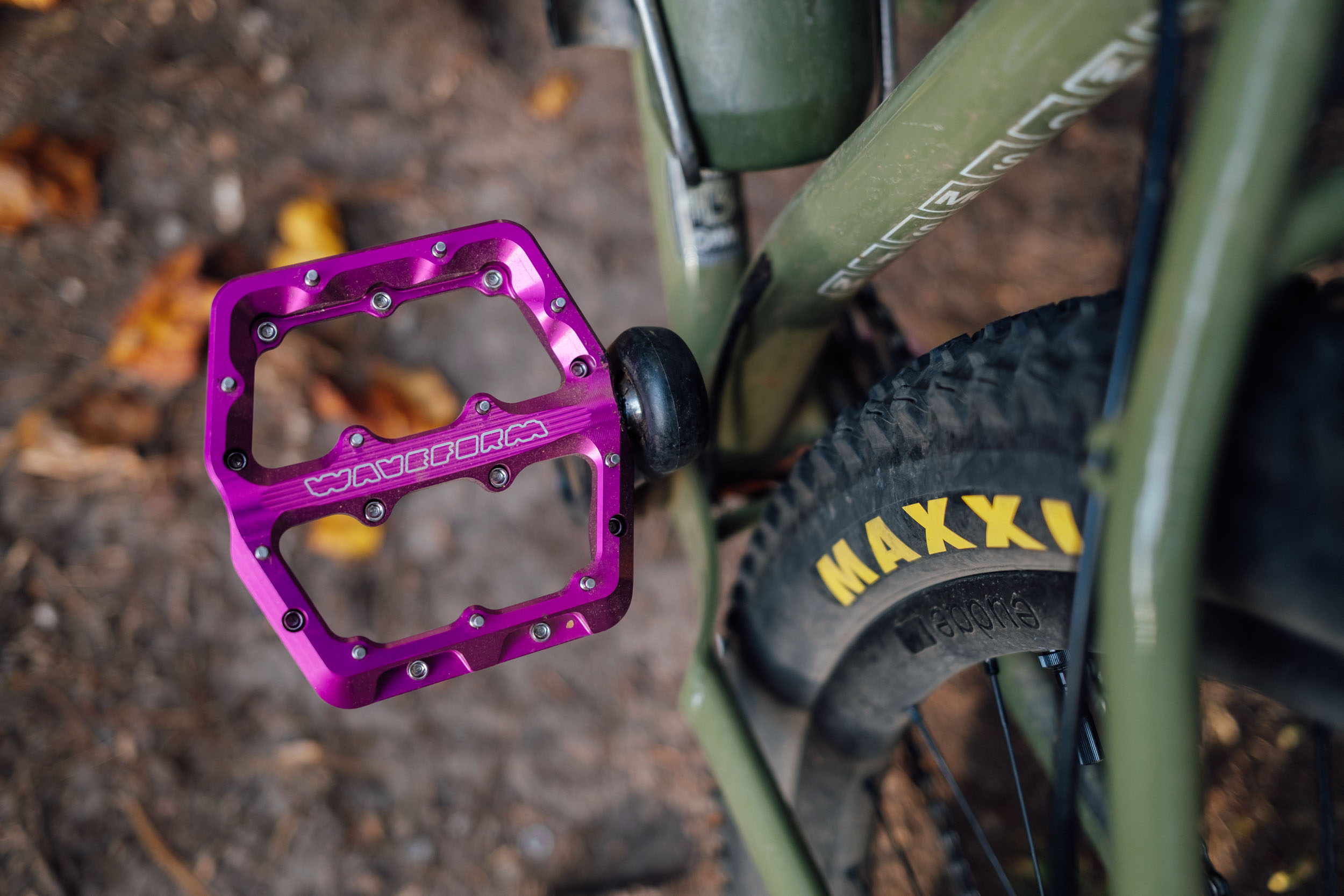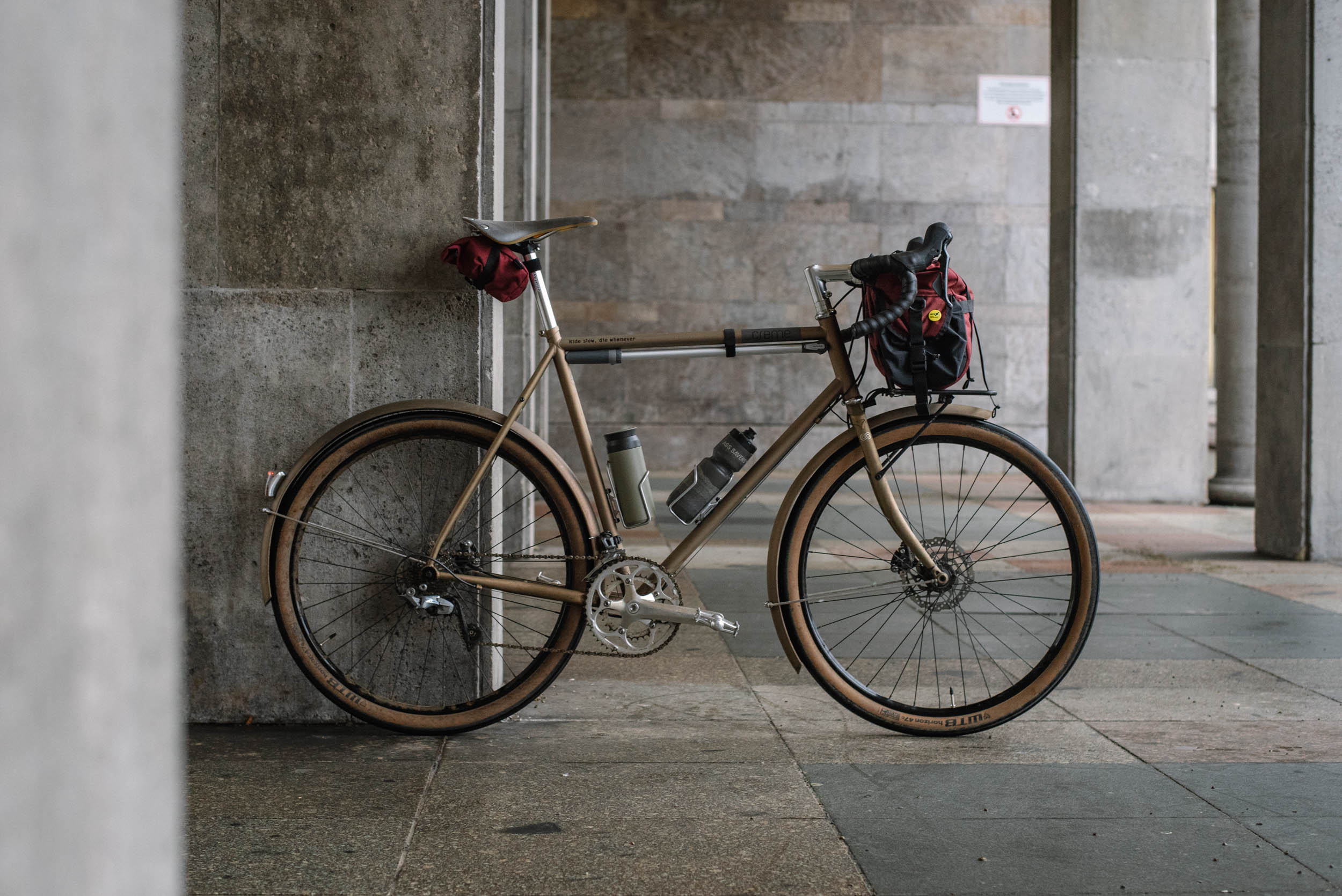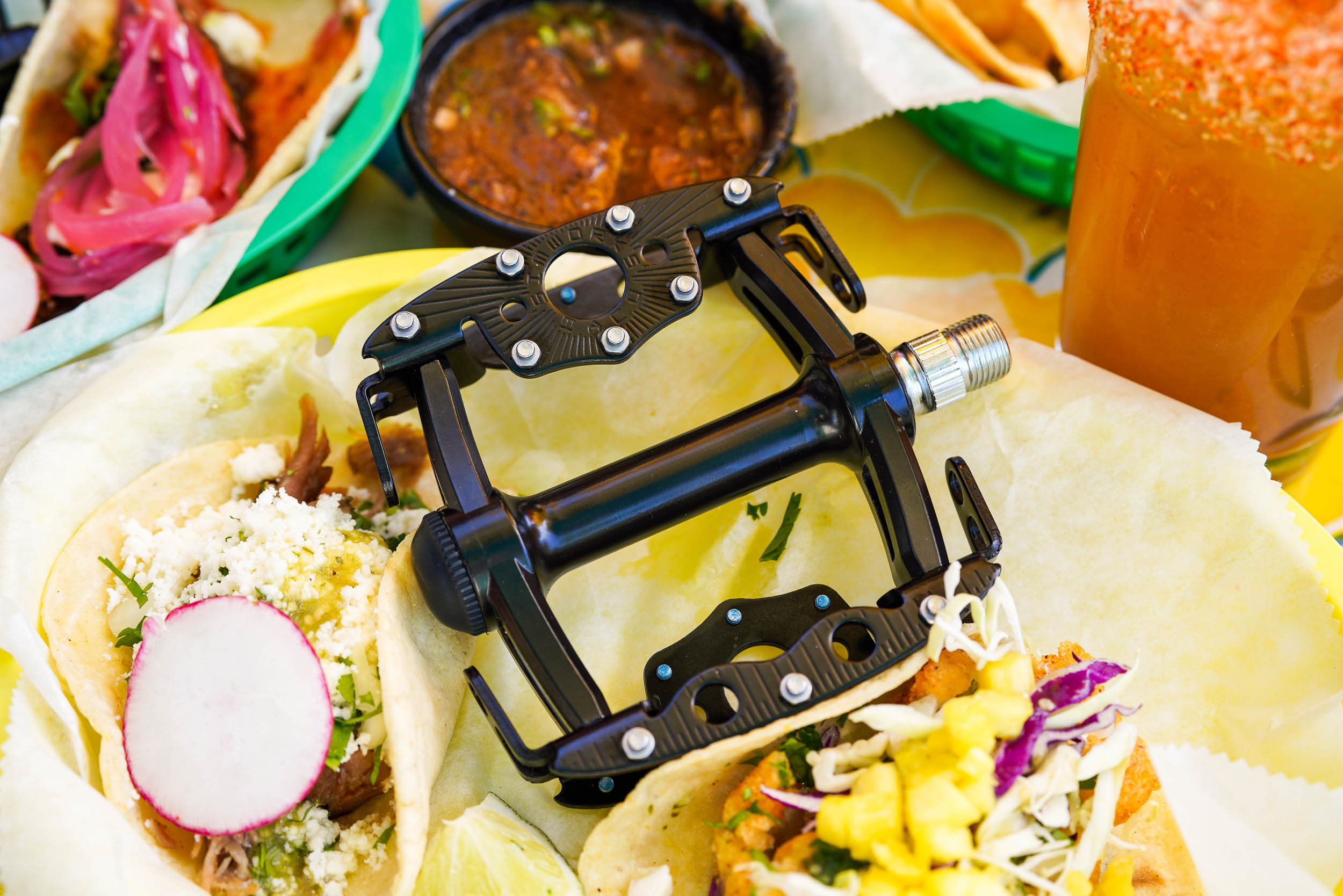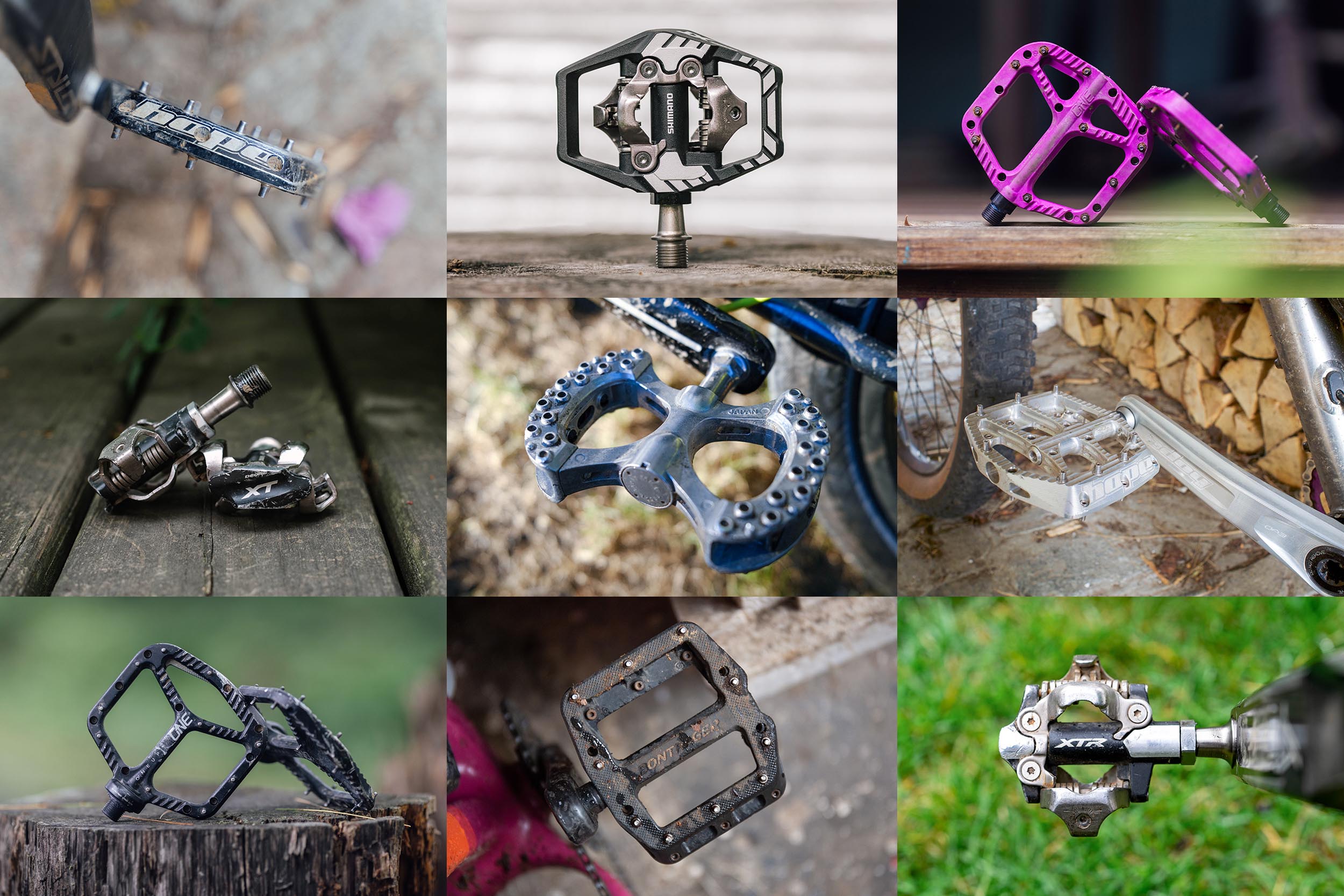SimWorks Taco Pedals Review
Released in May, the SimWorks Taco Pedals feature an oversized platform with 10 replaceable pins per side and some unique lines inspired by one of the most delicious foods of all time. Lucas has been swapping a pair of the Japan-made pedals among a few of his bikes throughout the spring and summer, and he reports back in this review…
PUBLISHED Aug 3, 2023
After many years of riding clipped in on almost all my bikes, including my commuters, I’ve slowly been dipping my toes back into the world of platform pedals. One catalyst for this change was making the move from a major European capital to a small town in Colorado and having my average commute shrink from half an hour to just a few minutes. Running errands in my Birkenstocks suddenly makes more sense, especially in the sweltering summer heat, and clipping in has generally been reserved for after-work loops and weekend overnighters.
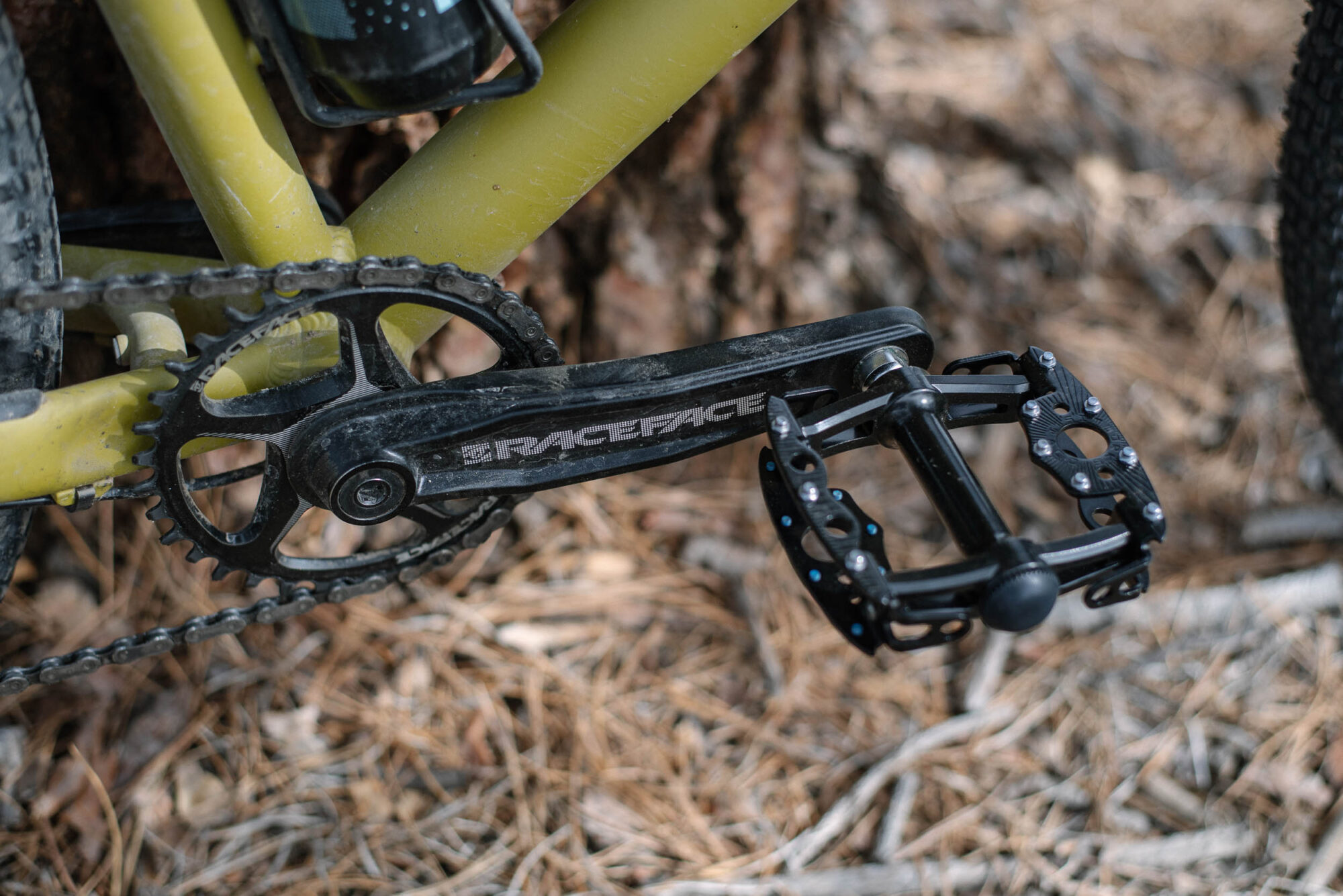
My hunt for a good pair of platform pedals was just beginning when SimWorks announced the $98 Taco Pedals this spring, and their distinctive shape—which takes inspiration from a particularly memorable plate of tacos their creator had in Los Angeles—caught my eye straight away. Manufactured by MKS in Japan, the SimWorks Taco Pedals feature a generously sized 110mm (front to back) by 105mm (side to side) platform, 33.5mm overall thickness, 10 replaceable studs per side, and tried-and-true cup-and-cone bearings. SimWorks offers them in silver or black, and their claimed weight is a fairly hefty 498 grams per pair. Mine weigh in right at 500 grams with a few bits of dirt and grease on them.
SimWorks says the Taco Pedals will “keep you planted and pedaling confidently through both your hunger-panged back alley sprint to your neighborhood taqueria, or that done and dusted hot-lap descent back to the car for a salted rim Tecate and lime,” which doesn’t explicitly clarify who or what they’re intended for. This ambiguity is quite fitting from the small Japanese/American brand, which I’ve admittedly never fully understood. Their cool and quirky releases blend genres and flavors of cycling, and their products are difficult to pigeonhole into a single category, such as gravel, mountain, or city. While other brands race to release and market gravel-specific this and that, SimWorks seems more interested in making curious stuff and letting buyers decide how to use it.
To get at least a little clarity about where they work best (this is BIKEPACKING.com, after all), I tested the Taco Pedals on four of my bikes over the past few months: a flat-bar gravely kind of thing, a titanium 29er bikepacking rig, an idiosyncratic ’80s mountain bike turned single-speed commuter, and a touring bike. The pros and cons revealed themselves pretty quickly while riding each bike, which I’ll dive into below.
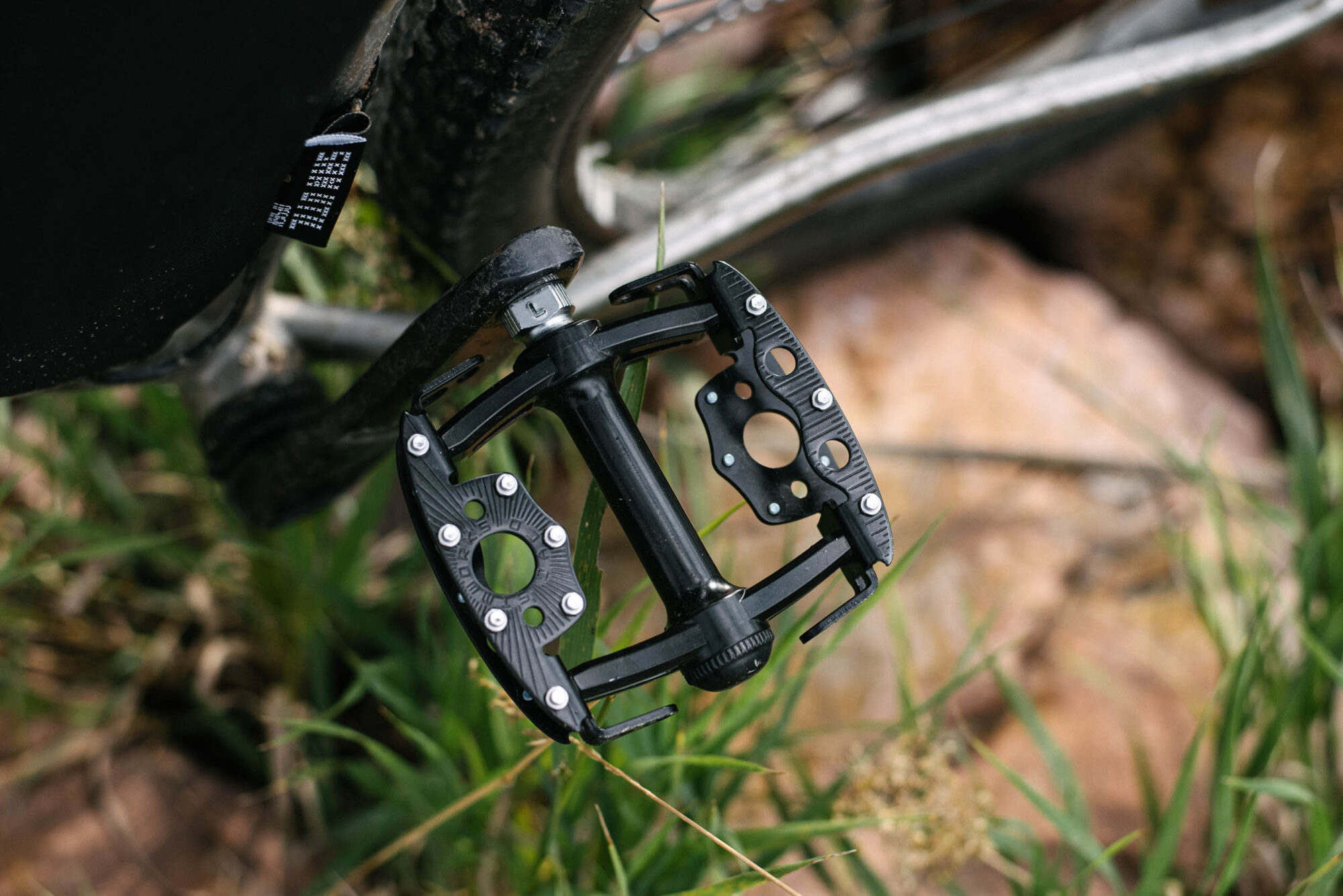
I appreciate the oversized platform the Taco Pedals provide, especially with my size US 13 shoe. I’ve never felt like I need more pedal underneath my foot while riding on them. At 110 x 105mm, they’re on par with the bigger platform pedals I’m familiar with, coming in just a hair under the size large Wolf Tooth Waveform Pedals at 112 x 106mm (which are probably the pedals I’d have purchased if SimWorks hadn’t released these when they did). And they’re quite a bit bigger than the 95 x 85mm MKS x Crust Sylvan Gordito Pedals I briefly ran on my commuter in Berlin, which were the first flat pedals I’d used in years and never found quite large enough to be comfortable. I have no complaints about the length or width of the Taco Pedals’ platform, though their taco-shell design makes them thicker than I’d prefer—something I partly attribute to their many scuffs and scrapes.
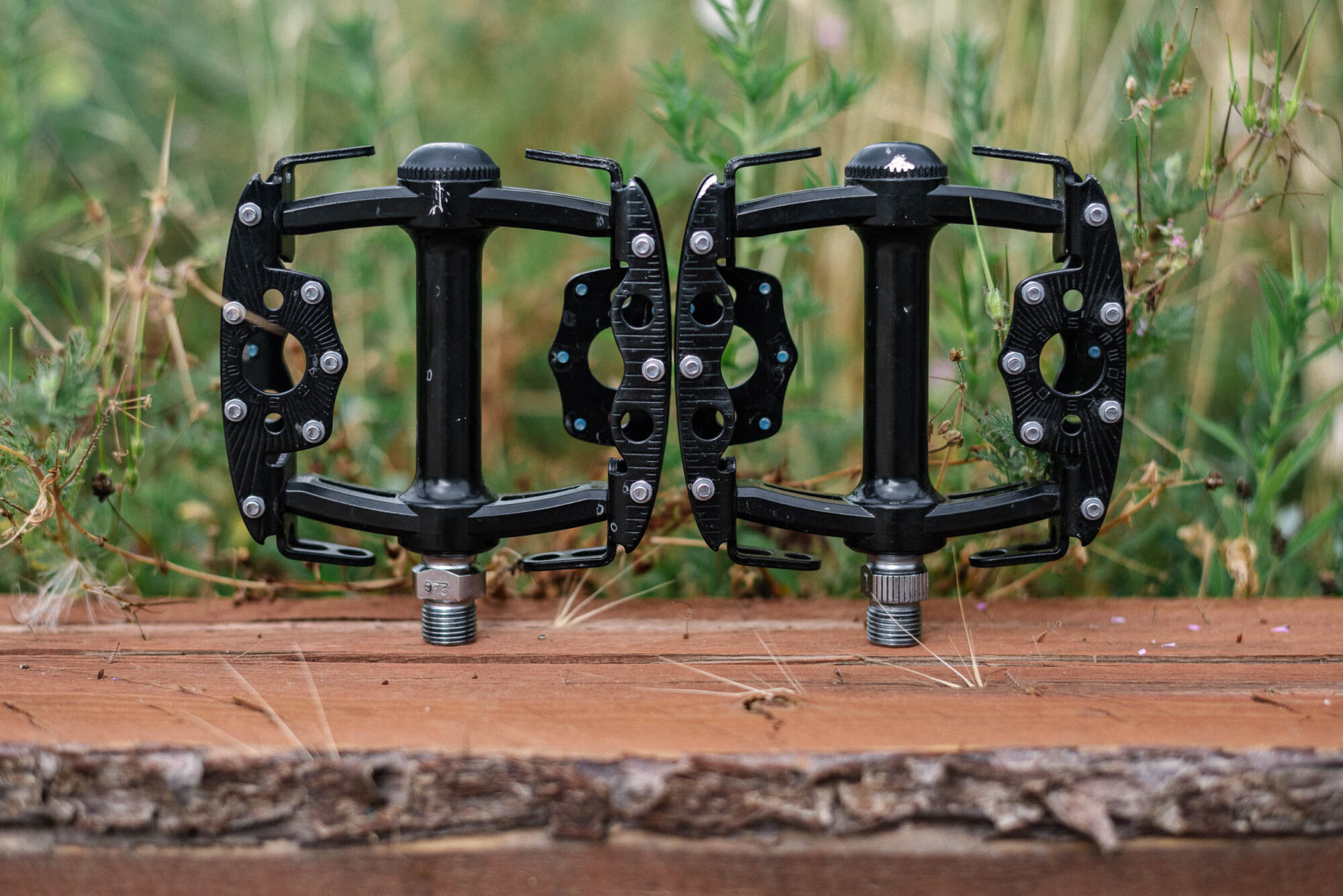
To my eye, the Taco Pedals look great, and I especially like their ornate engraving. Difficult as SimWorks may be to concisely define as a brand, one thing that unites all of their products is careful consideration of aesthetics, so the Taco Pedals’ striking design comes as no surprise. That said, the two classic colors on offer leave a little to be desired, and I’d love to see the range of options expanded in the future if the initial runs do well. These seem like a great canvas for some more creative colors. On that note, for folks who can’t chose between black or silver, I stumbled upon some Taco Pedals with mismatched bodies and cages being sold by Hope Cyclery in Pennsylvania.
After some initial stickiness, the bearings in my pedals spin smoothly, which you’d hope to be the case after only a few months of riding. I haven’t had to open them up yet, but I like the simplicity of cup-and-cone bearings and have generally had good luck with modern ones. I’ll update this review should I run into any issues, but my initial impression of the bearing system doesn’t give me any cause for concern.
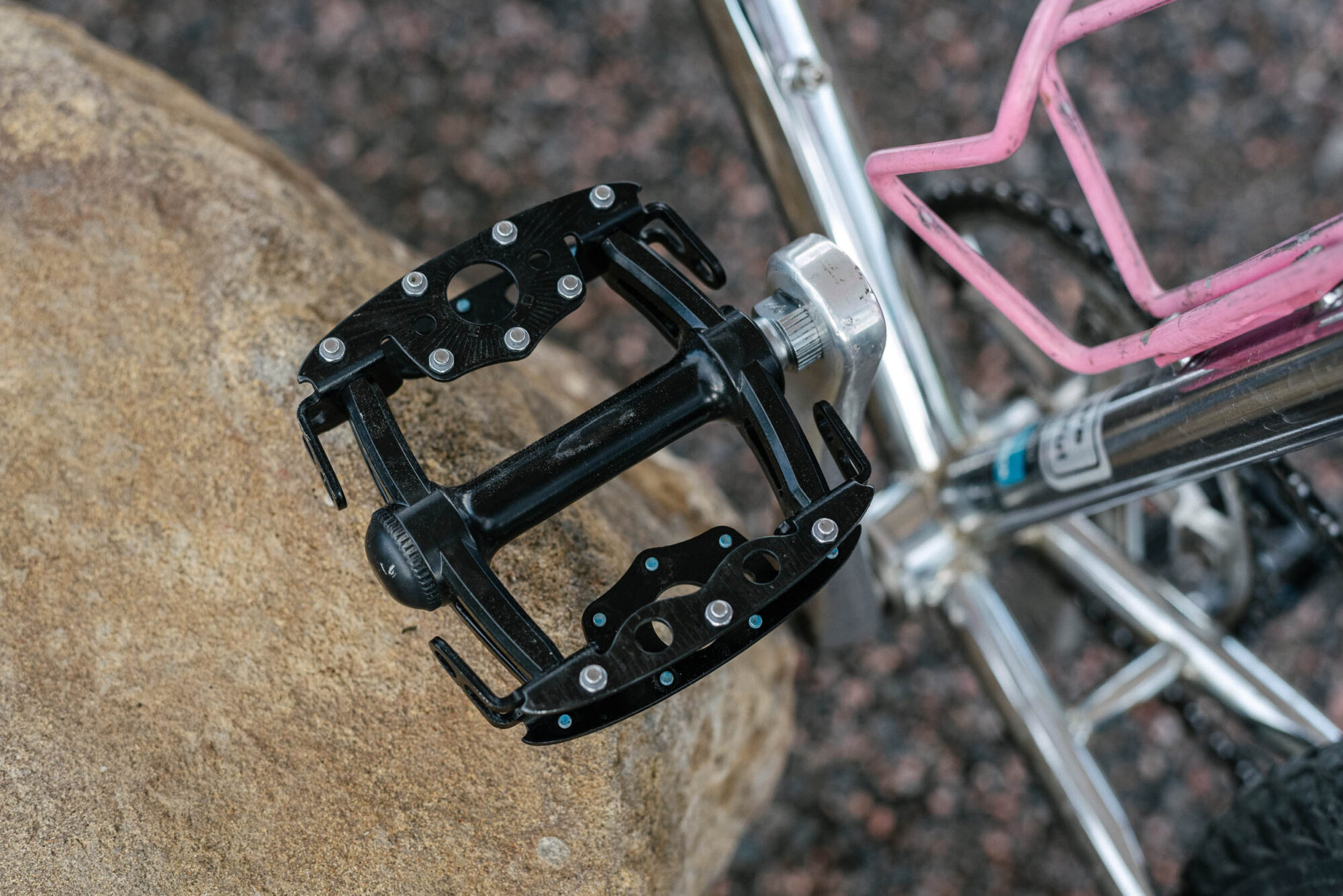
My biggest complaint about the Taco Pedals is the studs’ lack of grippiness. Large platform aside, the connection between my foot and pedals doesn’t feel sure enough for me to love them fully. I had the same complaint with the Sylvan Gorditos on my German commuter, and my foot completely slipped off them a couple of times when riding after a light rain, once leading to a badly bashed shin. I haven’t had any such incidents here in drier Colorado, but I find the level of confidence the studs provide to be more appropriate for casual riding and commuting than riding rugged trails on my mountain bike. They’re replaceable, as mentioned, and hopefully there will be a high-grip alternative from MKS someday. Comparing the grip of the Taco Pedals’ studs to those on the $49 Range Pedals from PNW Components (a mountain-bike-centric brand), for example, the difference is unmistakable. If super-sticky studs aren’t an essential feature for you, you likely won’t find any other flaws with the Taco Pedals. However, if you prefer a locked-in feeling, a more trail-focused flat pedal would likely better suit your needs.
- Material: Aluminum
- Weight: 498 grams
- Place of Manufacture: Japan
- Price: $98 USD
- Manufacturer’s Details: Sim.Works
Pros
- Distinctive look with ornate details
- Generous platform size
- Cup-and-cone bearings are simple and serviceable
Cons
- Relatively heavy
- Expensive compared to many good alternatives
- Studs could be grippier
Wrap Up
Summing up my experience of riding the Taco Pedals on several bikes: I wouldn’t go back to riding them on my bikepacking rig given their relative lack of grip; I preferred them for long, slow rides along country roads on my touring bike to faster off-road rips on my gravel bike; and I found them right at home on my commuter with a single gear and a big ol’ front rack hauling pizzas and groceries around town.
There are many lighter and cheaper options if performance, weight, or budget is your primary concern, but I think the Taco Pedals offer a welcome reminder that it’s sometimes okay to eschew those metrics and run something simply because you like the look of it. It’s the same reason you’ll find an old Salsa quill stem, Forager Cable Cherries, a hand-stamped brass headbadge, and a PAUL seatpost on various bikes in my fleet—the heart wants what the heart wants, even if there are more affordable or technically superior options.
Are the Taco Pedals a class-leading option for serious all-terrain riding? I don’t think so, but SimWorks doesn’t market them as such. If you like their styling, appreciate an oversized platform, and don’t mind the extra grams, they’re undoubtedly well-made pedals from an eccentric little brand that’s worth supporting. As for me, I’ll happily continue running the Taco Pedals on my town bike, where they look mighty tasty (sorry, but you should have seen this coming).
Related Content
Make sure to dig into these related articles for more info...
Please keep the conversation civil, constructive, and inclusive, or your comment will be removed.






